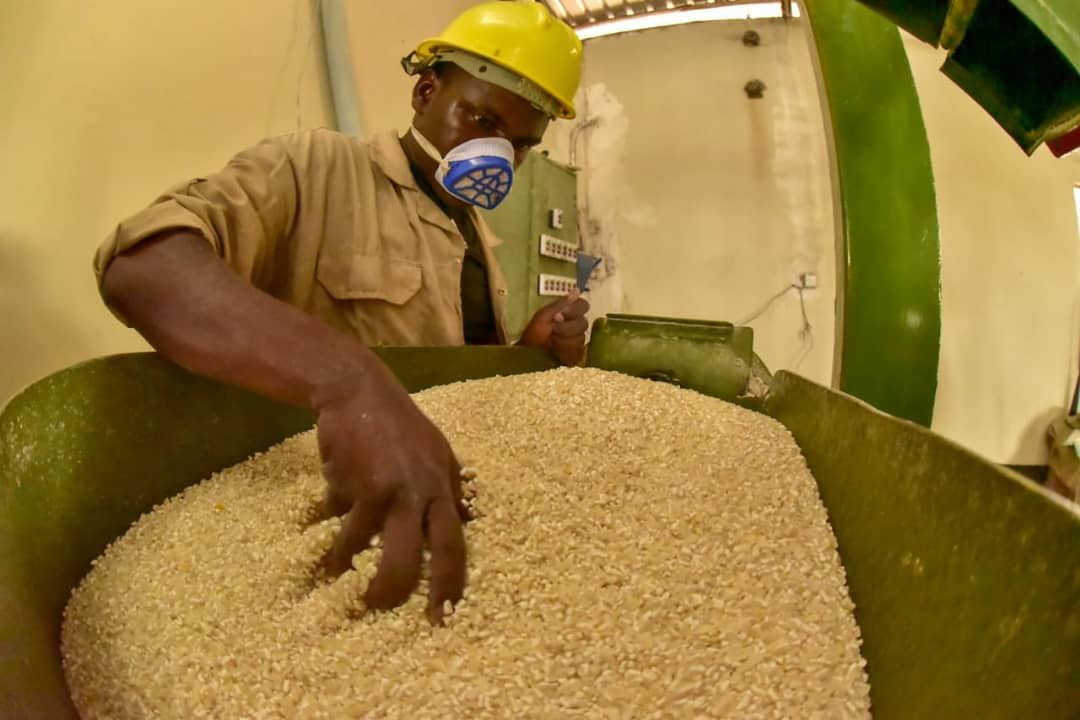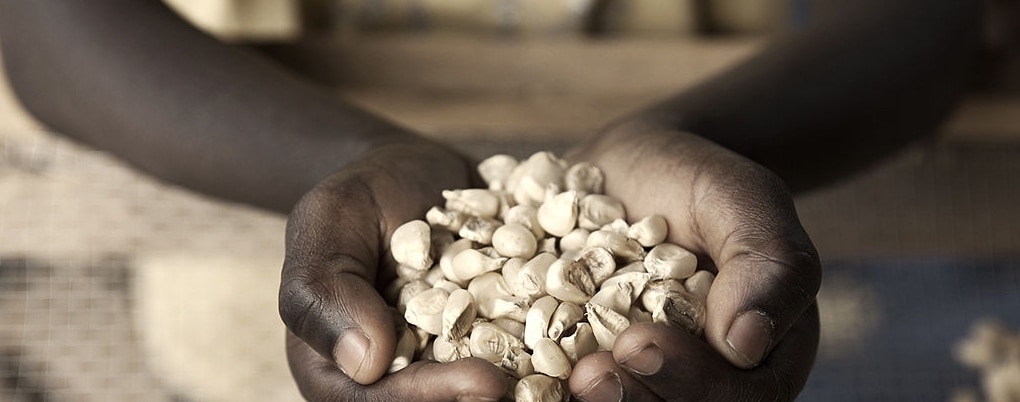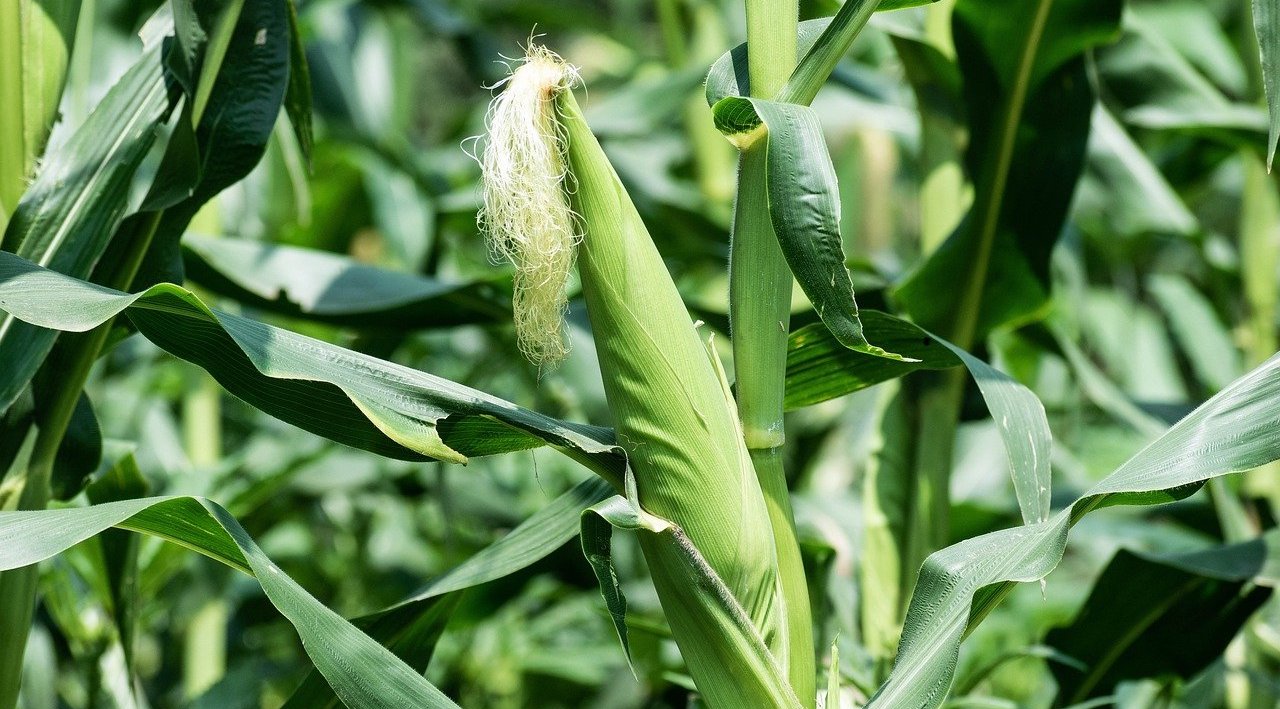Youth unemployment in Tanzania stands at 11.5 per cent. The rapid gains in economic growth in Tanzania averaging 7 percent in the past decade, have not translated into productive and decent employment to alleviate poverty.
Tanzania’s National Strategy for Youth Involvement in Agriculture (NSYIA) 2016-2021 is candid about the agricultural sector generating opportunities for youths to fully realize their potential along the agricultural value chains. It also recognizes strategic private sector partnerships including producers’ organizations, farmers’ federations and unions and their capacity to provide important components for transforming agriculture into commercially viable activities that generate substantial individual and national incomes.
Ramadhani Joel, Project Manager, Nyakitonto Youth for Development Tanzania (NYDT), expresses great optimism for youth in agriculture not only in Kigoma, but in Tanzania as a whole.
His organization, is one of five within the consortium that constitutes the Kilimo Tija Tanzania Project, Kigoma. The project, financed by AGRA is a multi-faceted partnership with the Government of Tanzania and partners to strengthen the agricultural inputs system, technology development, and supply chain to improve staple crop production, commercialization of farming enterprises and market access for farmers.
“The project seeks an agricultural transformation for increased incomes, improved food security and livelihood among Smallholder farmers in the western Tanzania,” says Joel.
Between 2017 and 2018, NYDT trained 2,170 farmers, of whom 85 percent of them were youth (male 70 percent and female 30 percent). The training covered land preparation, seeds, fertilizers, pre and post-harvest practices and markets geared to expand the economic opportunities available to them. Each trained farmer has targets to meet, to expand further afield, meeting and training other farmers. The project has impacted 170,000 famers in Kigoma region.
Through the intervention farmers are unlearning and pushing back the factors that perpetuated low productivity. The project has also enabled them to access financial services to support their investments in the agricultural technologies that promise better yields and surpluses.
AGRA’s involvement in scaling up system and farmer-level initiatives as well as agribusinesses in Kigoma Region mirrors the strategies identified by the Partnership for Inclusive Agricultural Transformation (PIATA) to catalyse and sustain an inclusive agricultural transformation in Africa. PIATA is a five-year engagement led by AGRA, USAID, the Rockefeller Foundation and the Bill & Melinda Gates Foundation.
For 30-year old Innocent Michaeli, a father of one, from Nyakitonto Village in Kasulu District, Kigoma Region, farming is not only his fulltime occupation but a way of life. However, the Kilimo Tija project has impacted him at a personal level in a way he could never have imagined.
After he left school a decade ago, his father bequeathed him 10 acres (4.0 ha) of land he settled into subsistence farming growing maize, beans and cassava just like his contemporaries in the village. Life was predictable, mostly difficult.
“I had heard the phrase ‘information is power’ many times but I did not know what it meant,” he says.
After several training sessions, he and 45 youths formed a group to give commercial agriculture a go. Of the original number, just 14 of them, eight men and six women have stayed the course and they are prospering. In the current season, the group is farming maize on 63 acres (25.5 ha) using new seed varieties, fertilizers and following good agronomic practices.
The expectation in Michaeli’s group is to harvest not less than 18 sacks of maize per acre. “Our projection is to make over TZS 60 million (US $ 25,616) after we sell off the maize.” he says.
Their zeal has earned them the support of their parents, and the surrounding villages report a similar trend where the older generation facilitate the youth with land to expand their enterprises.
“More and more youths want to participate in agriculture,” he adds, “They have seen the potential and opportunities for gainful employment despite the challenges.”
Francis Daniel, a maize farmer in Nyakitonto Village says it is encouraging that more young men and women are choosing to work in agriculture.
“Between 2018 and 2019, we have seen a great transformation in the attitudes of youth to agriculture,” he adds, “It means a lot that our young people are asking their parents for land to practice farming.”
Notwithstanding the persistent challenges caused by dependence on rain-fed agriculture, an underdeveloped irrigation potential, limited capital and the barriers to accessing financial services for the uptake of technologies, agriculture is gaining credibility among young people.
Financing and investments, are critical components in the support structure of an inclusive agricultural transformation for Kigoma and the rest of Africa. It entails planning for the provision of multiple services dedicated to supporting both on- and off-farm agricultural activities and businesses such as mechanization, financial inclusion, input provision, production and distribution, transportation, wholesale, processing and marketing. These services extend to agricultural training, research and extension services, strengthening farmer organizations and rural infrastructure.






